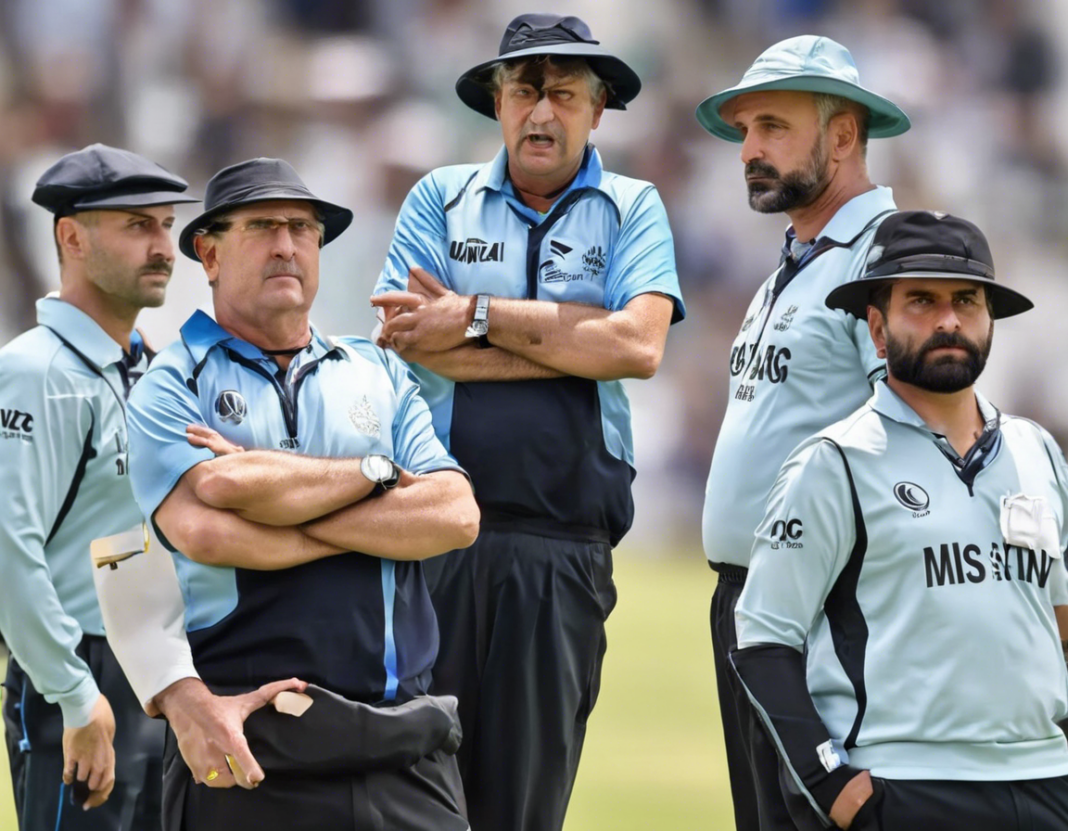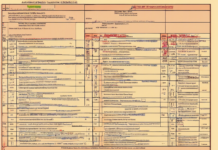The ICC World Cup 2023 is just around the corner, and as the excitement builds for cricket fans worldwide, the recent announcement of the umpiring panel for the tournament has added to the anticipation. Umpires play a crucial role in ensuring fair play and upholding the spirit of the game, and the selection of top officials for such a prestigious event is always eagerly awaited. Let’s take a closer look at the umpires who will be officiating at the ICC World Cup 2023:
Umpiring Panel
Elite Panel Umpires
The Elite Panel of ICC Umpires consists of the best and most experienced officials in the world of cricket. These umpires are entrusted with officiating in high-profile matches and tournaments, including the ICC World Cup. The selection for the ICC World Cup 2023 includes renowned names such as Aleem Dar, Nitin Menon, and Marais Erasmus.
International Panel Umpires
In addition to the Elite Panel, the ICC also appoints International Panel Umpires for various matches. These umpires are tasked with officiating in domestic games as well as some international fixtures. The ICC World Cup 2023 will feature international panel umpires who have consistently demonstrated their abilities at different levels of the game.
Match Referees
Apart from the umpires, match referees also play a vital role in ensuring fair play and adherence to the rules and regulations of cricket. The ICC World Cup 2023 will see experienced match referees overseeing the conduct of teams and players throughout the tournament.
Importance of Umpires in Cricket
Umpires are the custodians of the game, responsible for making crucial decisions on the field that can impact the outcome of matches. Their role extends beyond just officiating the game; they are also responsible for upholding the spirit of cricket and ensuring that matches are played in a fair and respectful manner.
Key Responsibilities of Umpires
- Making decisions on appeals for dismissals, such as lbw, caught behind, and run outs.
- Enforcing the rules of the game and penalizing players for code of conduct violations.
- Consulting with the third umpire for decisions that require video review.
- Managing the playing conditions, including bad light and weather interruptions.
Umpires are under constant scrutiny from players, spectators, and the media, and their decisions are often analyzed in great detail. The ICC places a strong emphasis on the quality and consistency of umpiring in international cricket, and selected umpires undergo rigorous training and evaluation to ensure they are well-prepared for the demands of high-pressure matches like the ICC World Cup.
Challenges Faced by Umpires
Umpiring in modern-day cricket presents a unique set of challenges, with advancements in technology and increased scrutiny placing additional pressure on officials. Some of the major challenges faced by umpires include:
- Decision-making under pressure
- Dealing with player confrontations
- Interpreting complex rules
- Managing on-field communications
- Adapting to new technologies
The role of umpires has evolved significantly over the years, with the introduction of DRS (Decision Review System) and other technological aids changing the dynamics of decision-making on the field. Umpires are now expected to embrace technology while also relying on their judgment and experience to make accurate decisions.
Training and Development of Umpires
To maintain the highest standards of officiating in cricket, the ICC invests in the training and development of umpires at all levels. Umpires undergo regular assessments and workshops to enhance their skills and knowledge of the game.
Areas of Focus in Umpire Training
- Decision-making
- Communication skills
- Fitness and endurance
- Rule knowledge
- Teamwork and collaboration
Umpires are also encouraged to learn from experienced officials and mentors in the field, gaining valuable insights and perspectives that can help them improve their performance. The ICC works closely with member boards to identify and nurture talented umpires, providing them with opportunities to officiate in domestic and international matches.
FAQs
1. How are umpires selected for the ICC World Cup?
Umpires for the ICC World Cup are selected based on their experience, performance, and track record in officiating international matches.
2. Can umpiring decisions be challenged by players during the ICC World Cup?
Teams participating in the ICC World Cup have the option to use the Decision Review System (DRS) to challenge on-field decisions made by the umpires.
3. What happens if an umpiring error is identified after a match has concluded?
Once a match is concluded, the result stands, and umpiring decisions cannot be overturned or changed.
4. How do umpires communicate with players on the field?
Umpires use signals, gestures, and verbal communication to interact with players and convey decisions on the field.
5. Are umpires provided with any technological support during matches?
Umpires have access to technology such as the DRS to assist them in making accurate decisions on the field.
6. How are umpires evaluated for their performance in matches?
Umpires are assessed based on their decision-making, rule interpretation, communication skills, and overall conduct on the field.
7. Can umpires be replaced during a match due to poor performance?
In rare cases of severe errors or misconduct, umpires may be replaced during a match to ensure fair play and the integrity of the game.
8. What qualifications are required to become an international cricket umpire?
To become an international cricket umpire, candidates must complete umpiring courses, gain practical experience, and pass certification exams conducted by the ICC.
9. How do umpires stay updated on rule changes and new technologies in cricket?
Umpires undergo regular training sessions, workshops, and seminars organized by cricket boards and the ICC to stay abreast of rule changes and technological advancements in the game.
10. What is the role of the third umpire in cricket matches?
The third umpire assists on-field umpires in making decisions by reviewing replays and providing insights on contentious issues such as dismissals and boundary calls.
As the ICC World Cup 2023 approaches, cricket enthusiasts can look forward to witnessing top-class umpiring and officiating in the tournament, ensuring that the spirit of the game is upheld and the matches are played with fairness and integrity. The role of umpires in cricket remains indispensable, serving as the guardians of the sport and upholding its rich traditions and values.








